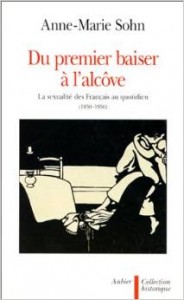I had a couple items appear over the winter holidays. First, I reviewed Jeffrey Merrick’s Sodomites, Pederasts, and Tribades in Eighteenth-Century France, an invaluable source collection for those interested in the history of sexuality in eighteenth century France:
Merrick’s contribution is unique in its ambition. Sodomites, Pederasts, and Tribades in EighteenthCentury France forms one part of a broader reconceptualization of eighteenth-century sexual lives that explicitly invites readers to “track down, dig up, root out, and take in as much as we can about the operations and regulation of sexual desire and networks in eighteenth-century France and to locate the patterns and insights we extract from the sources in the context of the society that produced them and of larger issues in the history of sexuality” (p. 2). The give-and-take between Merrick, the documents, and readers thus produce new understandings of what the history of sexuality could mean to professional historians and students. As both a research intervention and a teaching tool, Sodomites, Pederasts, and Tribades accomplishes a rare feat. It simultaneously showcases the process and the results of archival research. It does so, however, without foreclosing the ways its readers will respond to and interpret the history it reveals.
Read the whole thing here.
Second, I was interviewed by Beth Mauldin of the New Books in History Podcast about Public City/Public Sex. I hate hearing my own voice, but I think it came out pretty well! Enjoy!
